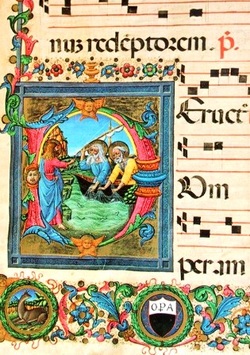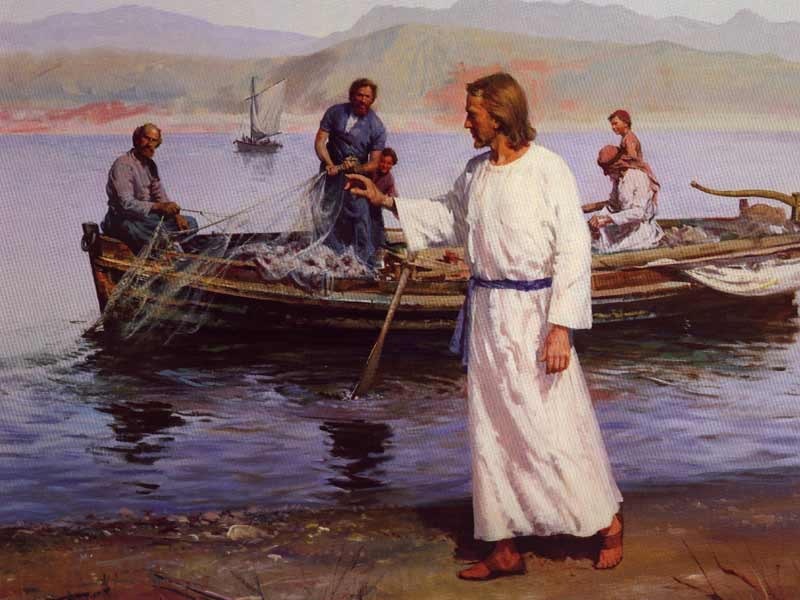
Sermon by St. Gregory the Pope
The Lesson from the Holy Gospel which hath but now been read in your ears, my brethren, knocketh loudly at the door of your hearts with a certain question, the answer whereto calleth for thought. This same question concerneth Peter, who before his conversion had been a fisherman; to wit, Wherefore did he, after his conversion, again go a-fishing? For the Truth hath said: No man, having put his hand to the plough, and looking back, is fit for the kingdom of God. Wherefore did Peter return to that which he had left? But if we take thought we can see the answer to this question. The trade which was harmless before his conversion, did not become harmful because he had been converted.
We know that Peter had been a fisherman, and Matthew a publican, and that Peter after his conversion went back to his fishing, but Matthew did not return to the receipt of custom. It is one thing to seek a livelihood by fishing, and another to amass money by the farming of taxes. Verily, there are many kinds of business that can hardly, or never, be practiced without committing sin; and to such kinds of business, he which hath once been converted must not again return.
It may likewise be asked why, when the disciples were toiling in the sea, the Lord, after his resurrection, stood on the shore; whereas, before his resurrection he had walked on the waves before them all. A mystical reason will be perceived if we bethink ourselves of the inner nature of the case. The sea is a figure of this present world, tossed to and fro by changing fortune, and continually ebbing and flowing with the divers tides of life. The fixedness of the shore is an image of the never-ending rest of the eternal home. Therefore, the disciples (who were as yet tossed to and fro upon the waves of a dying life), were toiling in the sea, but the Redeemer (who had already laid aside all that in this body is subject to corruption, and had risen again from the dead), stood safely upon the shore.





